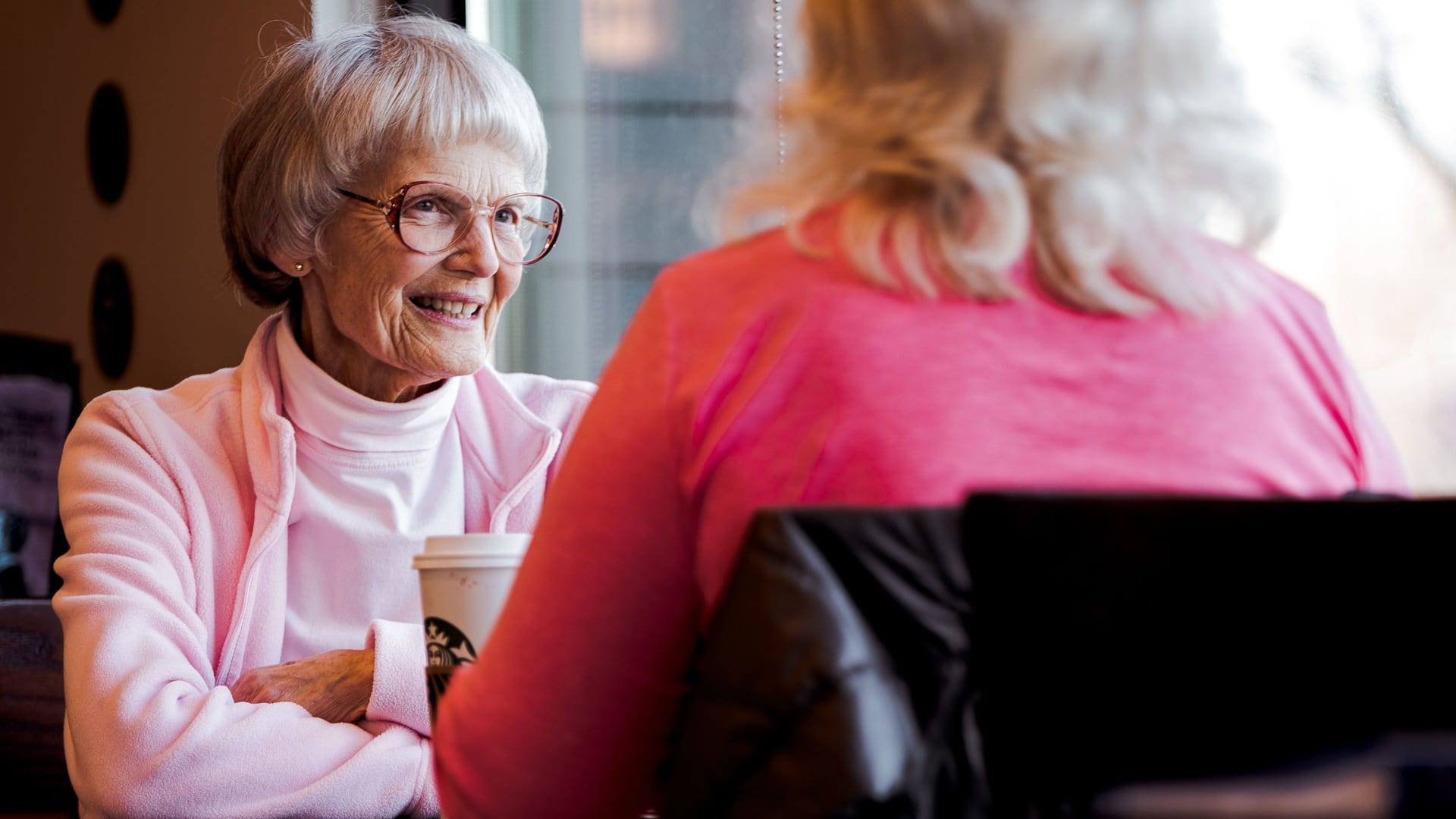
(As appeared in The Hamilton Spectator March 6, 2020)
Pat Spadafora
“When I was a boy and I would see scary things in the news, my mother would say to me, ‘Look for the helpers. You will always find people who are helping.’To this day, especially in times of ‘disaster,’ I remember my mother’s words and I am always comforted by realizing that there are still so many helpers – so many caring people in this world.”
– Mr. Fred Rogers
Social isolation is one of the most pressing challenges facing older adults in our world today. While one can feel isolated at any age, being isolated disproportionately affects older adults. An individual who is socially isolated usually has a limited number of social contacts, lacks a sense of belonging socially and lacks fulfilling relationships with others. While they are related, social isolation and loneliness are not the same. It is important to remember that not everyone who is isolated feels lonely. You can feel lonely even when you are with other people.
Recognizing that we are living longer and the importance of adding meaning and purpose to those years, 7 Hamilton organizations came together to learn more about what can be done to better support adults 55+ who are experiencing social isolation. From May 2016 until the end of December 2019, the Hamilton Seniors Isolation Impact Plan (HSIIP), represented by these organizations (Hamilton Council on Aging, Thrive, YWCA Hamilton, AbleLiving, Wesley Urban Ministries, Gilbrea Centre and St. Joseph’s Home Care), worked together on these three goals: reducing social isolation among older adults; building our community’s capacity to identify, reach, and connect isolated older adults and; preventing social isolation in the future.
The results of the 3½-year project were very encouraging. For example, almost 2000 isolated older adults were connected with programs, services and other supports while, in many instances, family members, friends and neighbours also benefitted as a result of the support provided to the older adult. Older adults themselves reported feeling more valued and more connected to others and a large percentage also reported that they now participate in social and physical activities. Encouraging news for all!
In terms of broader impacts in our community, organizations reported that we now have more effective hospital discharge outcomes; improved transitions from the hospital to the community; more flexible, responsive and personal referral pathways; improved crisis interventions, crisis support and emergency department avoidance and greater awareness across sectors about social isolation, available services and other resources. If you would like to learn more specifics about the HSIIP project, I encourage you to visit the Hamilton Council on Aging website https://coahamilton.ca/ Click on ‘Our Priorities’ and you will see a section called ‘Social Inclusion Matters’. An unanticipated gift that resulted from my own work during the latter part of the HSIIP project was uncovering so many ‘helpers’ quietly supporting older adults who were experiencing social isolation. I met, heard about and read about so many caring people in Hamilton who give what they have to help others without any fanfare or need for public recognition. I often heard about an older adult living in desperate circumstances, falling through the cracks in a system that strives to support them but that isn’t a perfect system. Stories about pharmacists going to an older person’s home after work to explain medications, a healthcare professional picking up and delivering, on her own time, a donated air conditioner to help a client with breathing problems, food being delivered, a mattress ‘magically’ appearing for a woman sleeping on a blanket on the floor – the list goes on.
Despite the informal supports that rally communities around older adults and others in need and, despite the formal organizations that do their best when their own resources are bursting at the seams, there is still much work to be done in Hamilton.
This is where you come in! You are never too young or too old to help others in small but meaningful ways. As part of the HSIIP project, we created the Do You Know your Neighbour? awareness campaign to show that each of us can help and support our neighbours. In very real ways, these connections help to improve social inclusion, to reduce social isolation and to enrich our communities.
In a caring society, we must not leave anyone behind. It is important that we not only support the most vulnerable members of our society but ensure the creation of preventative strategies that will sustain us in the long run. We all have an important role to play.
Think about it. What are some of the ways you can support your neighbours?
Pat Spadafora is the Project Manager for the Hamilton Social Isolation Impact Project, Hamilton Council on Aging. For more information or to donate to the Hamilton Council on Aging please see https://coahamilton.ca
